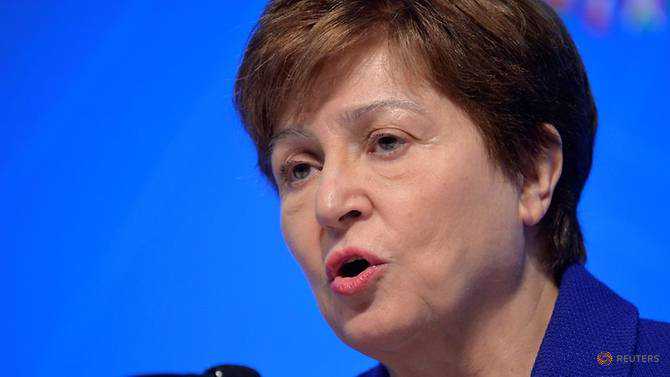G7 agrees to backside growth of IMF financial firepower
21 March, 2021

The world's seven greatest advanced economies have decided to support the first expansion of the International Monetary Fund's reserves since 2009, a step meant to help developing countries cope with the coronavirus pandemic, Britain said on Friday (Mar 19).
Britain - which is chairing the Band of Seven (G7) this season - said G7 finance ministers possessed agreed to support a "fresh and sizeable" increase in the volume of Special Drawing Rights (SDRs), an internal currency employed by the IMF.
"Today's milestone arrangement among the G7 paves just how for crucial and concerted actions to aid the world's low-money countries, making certain no nation is left out in the global economic restoration from coronavirus," British financing minister Rishi Sunak said.
The news headlines was welcomed by IMF Managing Director Kristalina Georgieva who said the G7 finance ministers' getting together with was "productive".
This past year the IMF said it wanted the allocation of SDRs to go up to the same as US$500 billion from the US$293 billion agreed during the last expansion in 2009 2009, soon after the global financial crisis.
That expansion was opposed by then US President Donald Trump. Last month US Treasury Secretary Janet Yellen explained she would like an expansion but wanted better transparency about how exactly the SDRs will be used and traded.
Sources in the usa acquainted with the G7 talks said a rise of around US$650 billion have been under discussion.
Also if Yellen wins consensus for an SDR allocation that falls below the threshold requiring approval simply by the US Congress - about US$679 billion predicated on today's exchange rates - the US domestic politics are tricky.
Congressional Republicans have previously complained the move would fail to target the countries in most need to have of the funds but would provide no cost cash reserves to China, Iran and different countries viewed as adversaries by the Trump administration.
Senior Republican lawmaker French Hill reported in a recently available letter to Yellen that extra SDRs "would deliver unconditional liquidity for some of the very most brutal dictatorships in the world".
Any expansion of SDRs may also need to be agreed with countries outside the G7, including China, before the IMF's spring meeting on April.
Credit ratings agency Fitch said an increase in SDRs to US$500 billion will be equivalent to 0.5 per cent of global annual monetary output and represent 3.5 per cent of global financial reserves.
"It can help countries to cope with immediate external financing pressures, but is insufficient to ease broader debt service challenges," Fitch wrote in an email to clients.
Britain's finance ministry said extra SDRs would support poorer countries "purchase crucial requirements such as for example vaccines and foodstuff imports, and increase the buffers of emerging markets and low-income countries".
Anti-poverty organizations welcomed the move but said more would have to be done for richer countries to talk about their unused SDRs with poorer types.
Source: www.channelnewsasia.com
